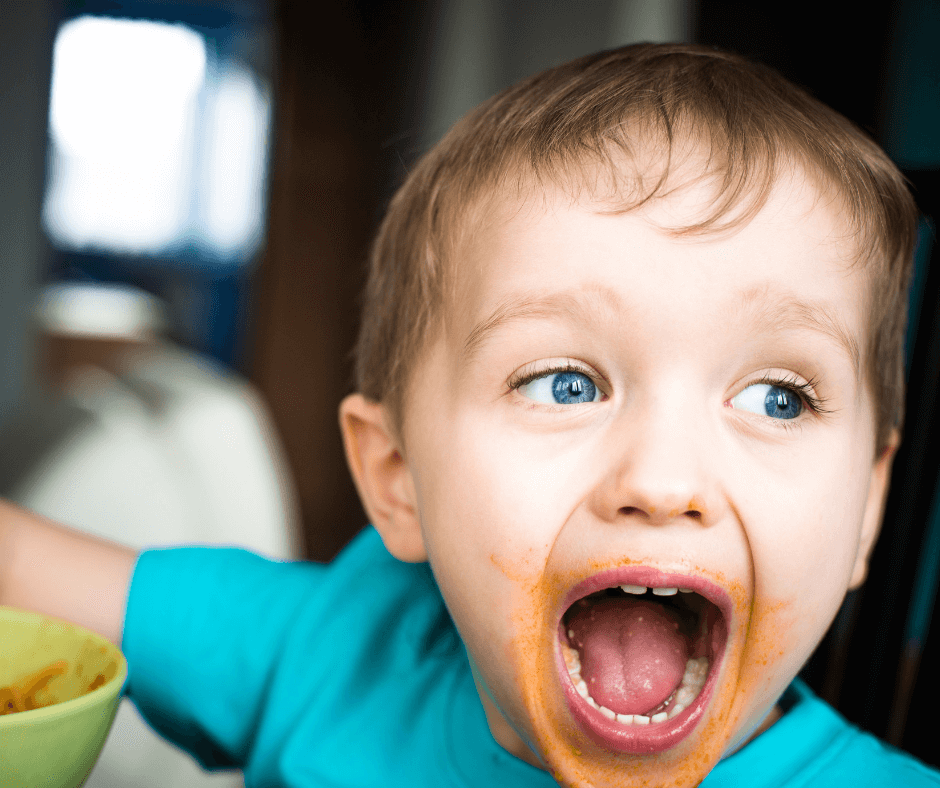 Does it ever seem like your preschooler's behavior is out of control and it just has you stumped? It feels like you tried everything, and have no clue what to do next?
Does it ever seem like your preschooler's behavior is out of control and it just has you stumped? It feels like you tried everything, and have no clue what to do next?
Me too.
There’s a story I often tell parents about a time when my child was about 3 1/2 (everything they say about 3 1/2 is true, by the way) where he refused to get dressed one morning. I had to get to work. He needed to go to preschool.
And he was in full-on resist mode.
He fussed and ran away from me and flopped his body all around.
He kept saying “No!”
Loudly.
It looked like my three-year-old's behavior was out of control.
I Just Didn't Know What To Do…
I was getting frustrated and annoyed.
None of my cajoling, or begging, or lecturing had worked. I had already raised my voice and now he was hiding under a nightstand in the corner of my bedroom.
I felt my self-control slipping away.
At my wit’s end, only three remaining strategies came to mind:
- Force: I could physically overpower him and shove him into his clothes. Though even at 30ish pounds that could end badly (especially if I was mad while doing it; social worker creed: never touch a child when you’re angry).
- Threaten: I could threaten him with some punishment, or removal of a privilege, or other unpleasantness.
- Bribe: I could tell him I would reward him with a treat/desired activity/toy/whatever.
Here's Why None of Those Really Achieve Anything
But, and it’s a big but, none of those usual parenting responses would strengthen my relationship with my child. None of them would bolster our connection.
My friend and colleague Pam Leo (author of Connection Parenting) says that when it comes to parenting strategies, do what's going to bring connection. If it’s going to break the connection don’t do it.
And here's the thing. Each of the three approaches above breaks connection because it is coercive in some way. It's all about control. If I chose any of them with my child:
- He wouldn’t gain any new mastery over his emotions, moods, or behavior.
- He wouldn’t learn anything other than “the adults are in charge and I should obey.”
- He wouldn’t get to think or choose.
- He wouldn’t feel empowered to get dressed.
If I used any of the above, wouldn't we have the same old struggle all the time?
So, What Did I Do Next?
Well, on that day, I couldn’t think of anything else. I knew in my bones that I didn’t want to do any of what I COULD think of.
So, I did nothing.
For the moment, I admitted defeat.
I looked over at my three-year-old. He looked back at me. I sat down on the floor.
“I don’t know what to do,” I said.
He looked at me. I looked back.
I sat there for a minute (it felt like more than a minute). And in that moment of PAUSE, I remembered that connection was the goal. So I asked myself, “How can I drop everything else, skip the power struggle, skip fighting for control, and just go for connection?”
And That's When I Had The Lightbulb Moment…
I looked down and saw my son’s blue and white muslin “lovey” blanket. He’d dropped it while skittering, still in his PJs, to hide in the corner.
“Of course, Playlistening!” I thought to myself.
I picked up the blanket and with a twinkle in my eye, threw it toward my son. He caught it and looked over at me. He threw it back at me. I threw it back, this time right at his face.
He giggled and threw it at my face. We both laughed.
“Oh no you don’t!” I said, laughing and tossing the blanket toward him again. “I’m gonna get you!” I yelled as I jokingly lunged at him, giving him a big hug.
And guess what?
Once we were laughing and relaxed, I was able to steer him toward his room and some clothes so we could (finally) get out the door.
He moved right out of resist mode, into “let's get moving” mode. My three-year-old's behavior was fully in control!
No force, threats, or bribes necessary.
Meet Sarah
 Sarah MacLaughlin is an author, social worker, and human development nerd. Her goal is for all parents and people who interact with children to have the ability to pause and respond rather than react, better EQ and self-regulation skills, and confidence setting limits. Sarah is writing her second book, Raising Humans With Heart: Not a How-To Manual. She lives in the woods of Maine with her family and is Mom to a tweenager who gives her plenty of opportunities to take her own advice.
Sarah MacLaughlin is an author, social worker, and human development nerd. Her goal is for all parents and people who interact with children to have the ability to pause and respond rather than react, better EQ and self-regulation skills, and confidence setting limits. Sarah is writing her second book, Raising Humans With Heart: Not a How-To Manual. She lives in the woods of Maine with her family and is Mom to a tweenager who gives her plenty of opportunities to take her own advice.